Featured Impact Story
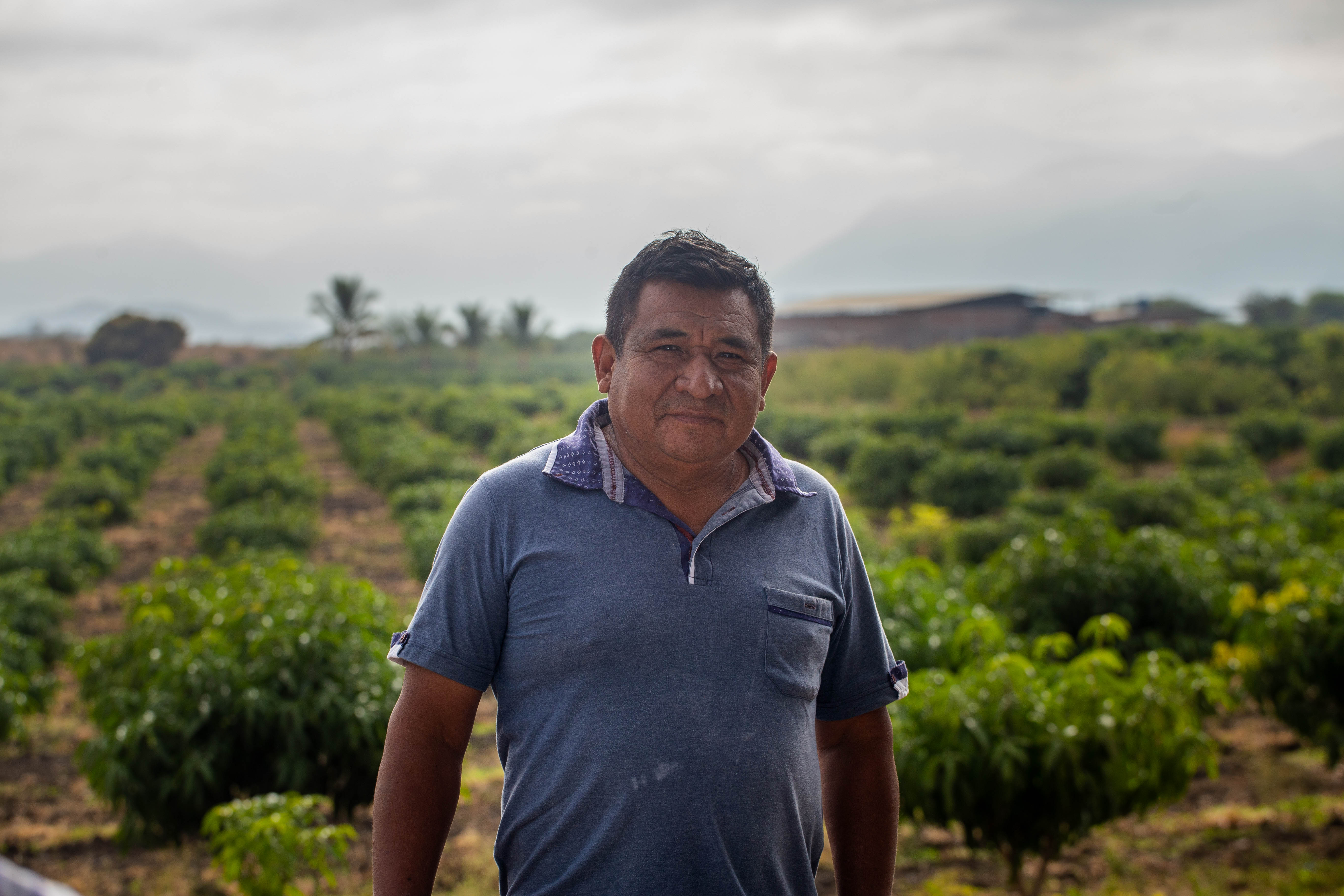
Impact Story
A Mango Farmer in Peru
Carlos Ochoa has worked in agriculture for over 20 years as a farmer and owns the Santa Rosa farm in Peru. His entire family, including his four children, are dedicated to agriculture as farming is the family tradition. Before purchasing the farmland using his savings, Carlos rented the property. Today the farm employs about 40 workers during harvesting season.
Carlos explained the challenges of farming and how he became a mango farmer. “Before, I grew rice, and now I grow mangos. Before there was more water, so we sowed rice, all of this area was filled with rice paddies. Now, we have water shortages and because of that I grow mangos instead and the entire harvest is exported to Europe and Asia.”
“For the future, I hope to keep growing trees and maintaining the soil quality, and perhaps buy a larger fumigation tank. We get loans every year, and it helps us to work and improve the plantation. It helps us to keep it in good condition and improve the furrows and the roads.”
Photo credit: Robi Bosch for BlueOrchard
Impact Story
A paper product manufacturer in South Africa
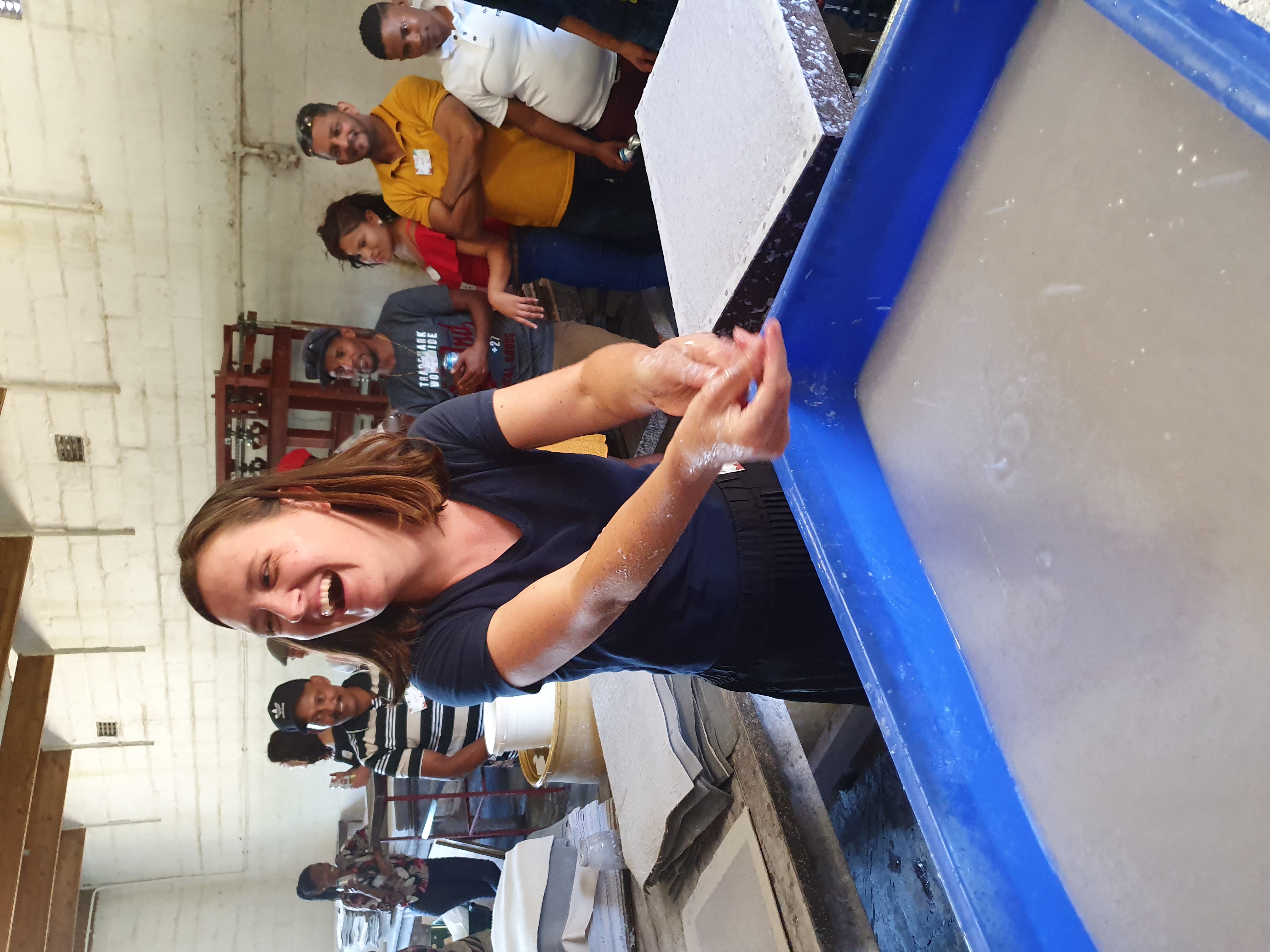
Roxanne Schumann is one of the founders and Managing Director of Growing Paper, a company in South Africa that manufactures 100% recycled handmade paper products, such as business cards, envelopes, and notebooks. Roxanne founded her company 14 years ago and currently employs 40 people.
She believes that being a woman entrepreneur has given her a unique perspective to face business challenges by embracing her values. She said of Growing Paper’s flexible operations, “Our production doesn’t follow a rigid assembly line; it dances to the rhythm of nature. As we faced the unpredictability of weather patterns and environmental shifts, we learned to adjust, to pivot, and to find innovative solutions. This adaptability isn’t just a business strategy; it’s a reflection of the tenacity that women entrepreneurs exhibit every day.”
Lula, one of BlueOrchard’s financial institution partners, provides a revolving capital facility for Growing Paper. This gives Roxanne the peace of mind that when there are challenges with cash flow, Growing Paper can call upon the facility and set up flexible repayment schedule. To Roxanne, managing the company is not just about running a business, but also about empowering a community and providing employment opportunities.
Impact Story
A sheep cheese and curd producer in the Republic of Moldova
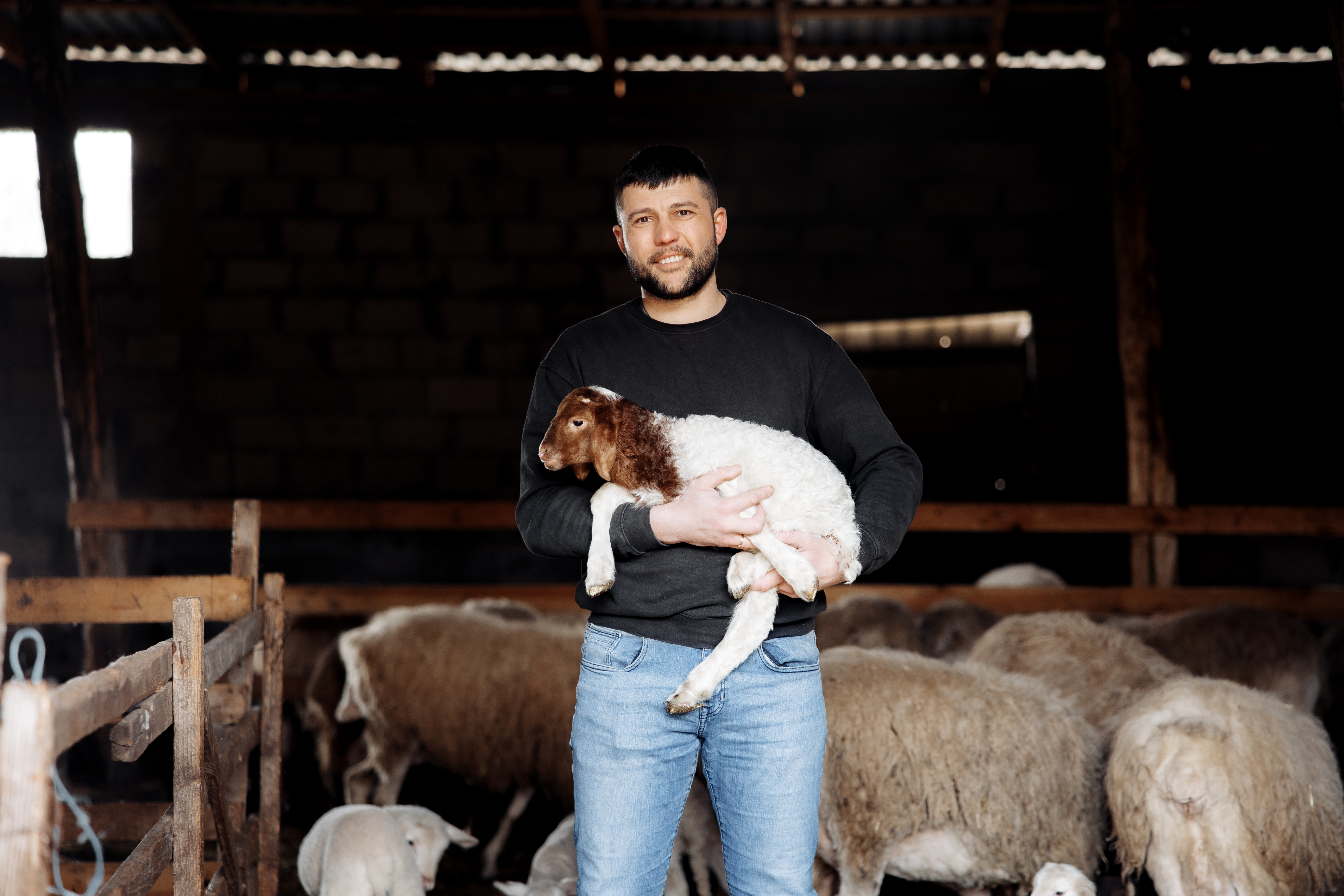
Vasile Munteanu is a young entrepreneur and founder of Agroferma, a business that produces sheep cheese and curd in the Republic of Moldova. His products are sold at local fairs and delivered throughout the community. Vasile received a loan from Microinvest, one of BlueOrchard’s financial institution partners, for a new sheepfold and production facility to help him grow his business. For Vasile, starting the company came with challenges, as he did not come from a family of sheep farmers. Through research, trial and error, and perseverance, he learned that the sheep’s feed was the most important input and developed his own fodder recipe.
Since founding Agroferma, Vasile has developed three productive breeds of sheep and has ambitious plans to expand his products. “We want to develop these sheep breeds further; they have adapted well to the climate, and we already know how to care for them. We also want to start producing cheeses, pass a course to receive the necessary certification, and bring a new, packaged product – goat’s milk.”
Vasile believes that the loan from Microinvest helped him achieve his goals more quickly than he would have been able to if he had tried to set the business up on his own.
Impact Story
Straw Weaving in Peru
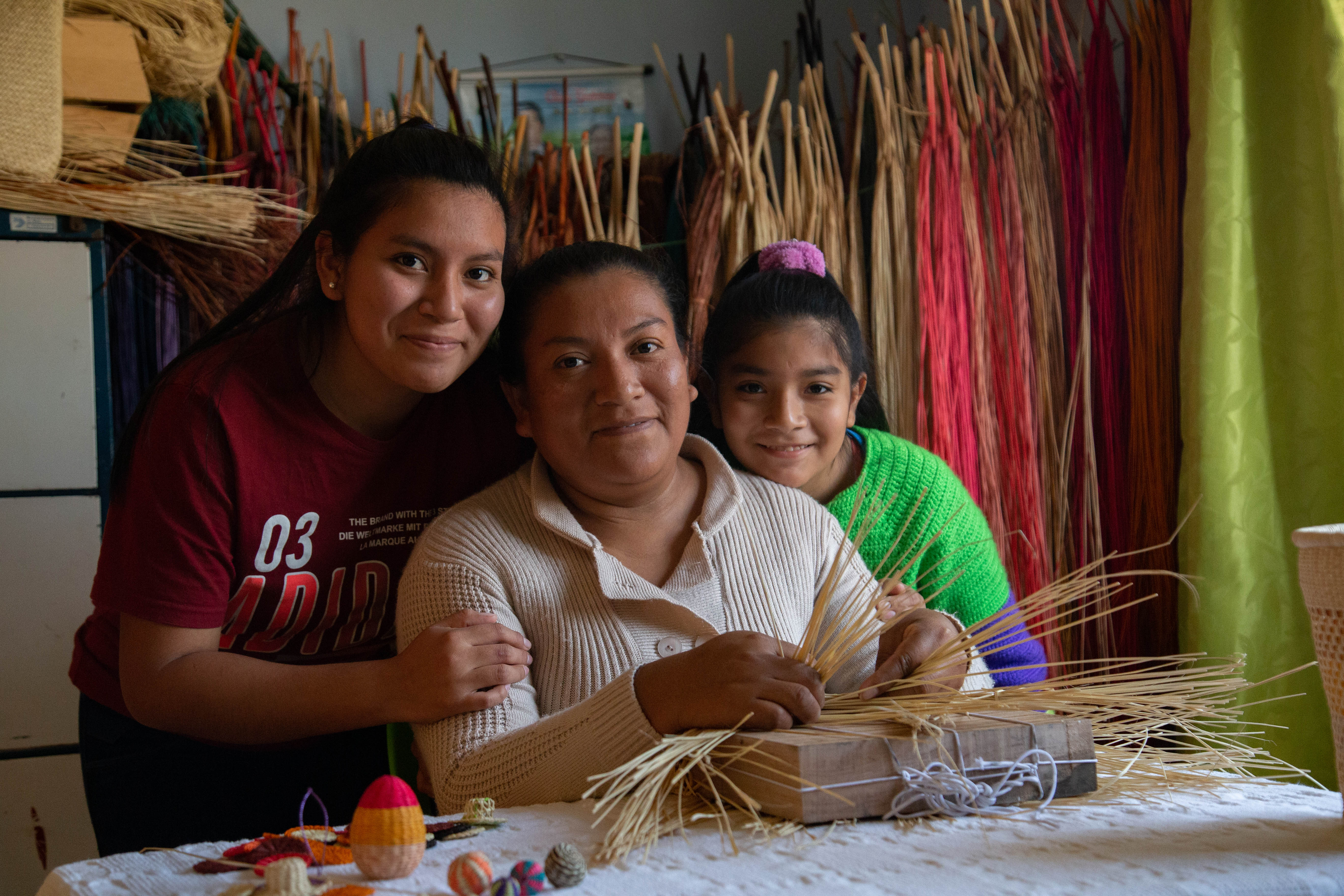
Lucia Andrea Vega Prado learned the art of straw weaving at a young age and now has a small workshop in her home where she makes purses, cups, and cup holders from palm, junco, and toquilla straw. The straw has a natural color, which allows her to dye it according to her customers’ preferences with natural materials such as firewood and alum.
The art of straw weaving has been passed down from generation to generation within Lucia’s family. Lucia watched her mother work with toquilla straw, and now Lucia is teaching the craft to her own children.
Lucia plans to create her own association where she can lead a group of artisans. She also aspires to set up a stand with showcases in Catacaos – her hometown and one of the most prominent tourist regions in northern Peru – where she can display all the handcrafts she makes.
Photo credit: Robi Bosch for BlueOrchard
Impact Story
A Tailor in India
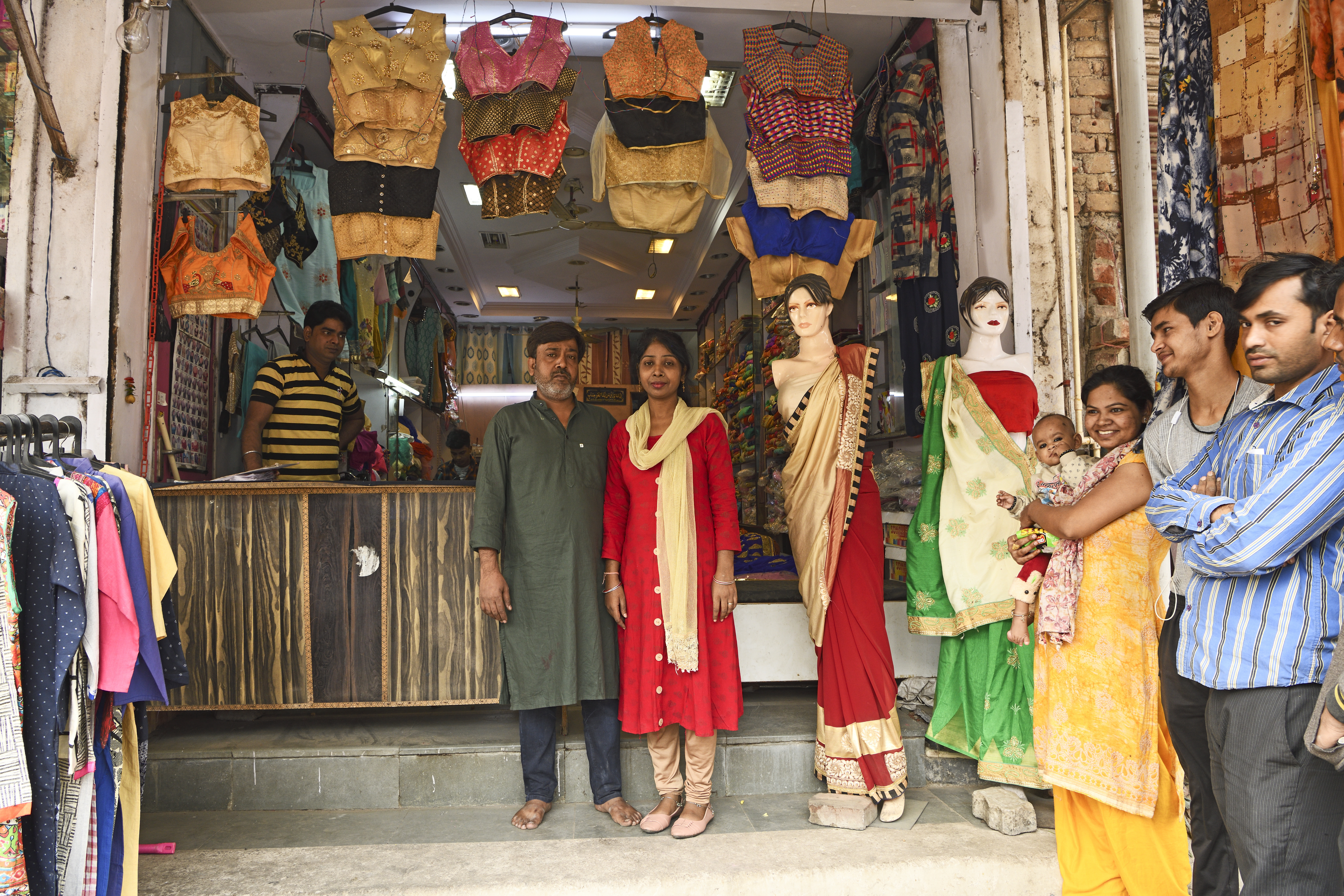
In 2014, Rashida Begam opened a tailor shop in India like her father once owned before he passed away when Rashida was 18 years old. With the help of a $2,800 microloan, she was able to build her business, hire two employees, and purchase two sewing machines.
Rashida said, “The loan has been very helpful. It also meant that I was able to attend a business finance course and get feedback and support in developing my business plan – it was more than just money! As a result of the loan and the changes that I was able to make to my business, things are running very well, and I have not had any financial difficulties in amortizing the loan and paying the interest. Also, I feel much more independent today, something I’m very proud of.”
Rashida also explained her plans for the business. “I want to build the business up even more, and I think I will probably take out another loan to allow me to do this. My dream is to be known for my great designs and keep things interesting for my clients. I also want to continue supporting my family and hope that one day my daughter may take over the business.”
Photo credit: Robi Bosch for BlueOrchard
Impact Story
A sweet specialty from Cali, Colombia
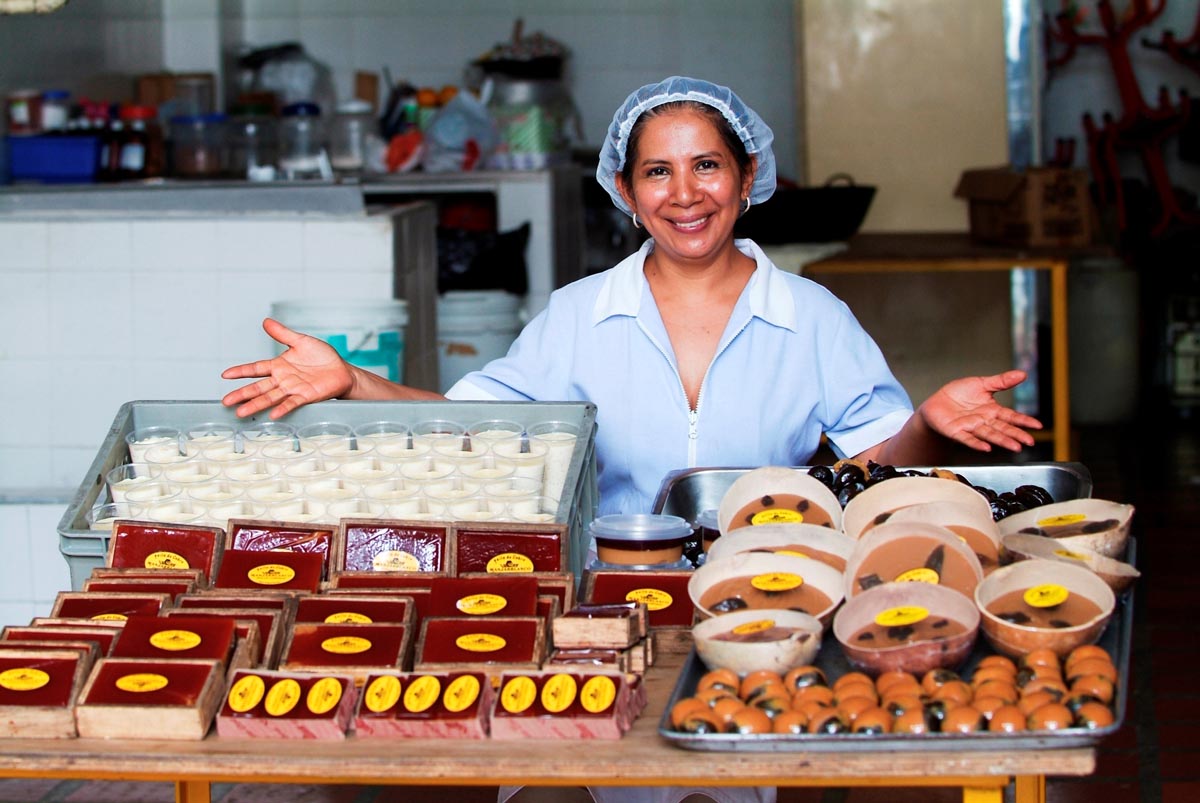
The manjar blanco is a sweet specialty from Cali, Colombia made from milk mixed with cane sugar that is heated and whipped meticulously at length in big pots. Rubiela and her husband have been producing the treat for 13 years, at first from her home kitchen by hand with the simplest means and today with machines they developed themselves. These machines allow them to regulate temperature and different mixing rhythms to achieve the highest quality possible. The couple is now selling their famous manjar blanco and other sweets made of milk and guava in various markets and stores throughout Cali, notably at bus stations. The Cali sweets are prized as gifts by visitors and residents alike. Rubiela Sanchez and her husband have been faithful clients of their MFI, which has supported them not only through loan capital but also with business advice and publicity.
“Our business would never have grown this much and had so much success without the support and advice we received from our loan officers. I am thankful for the opportunities they have opened to us,” says Rubiela.
Impact Story
A Story of Mutual Growth: BlueOrchard and Banco Solidario
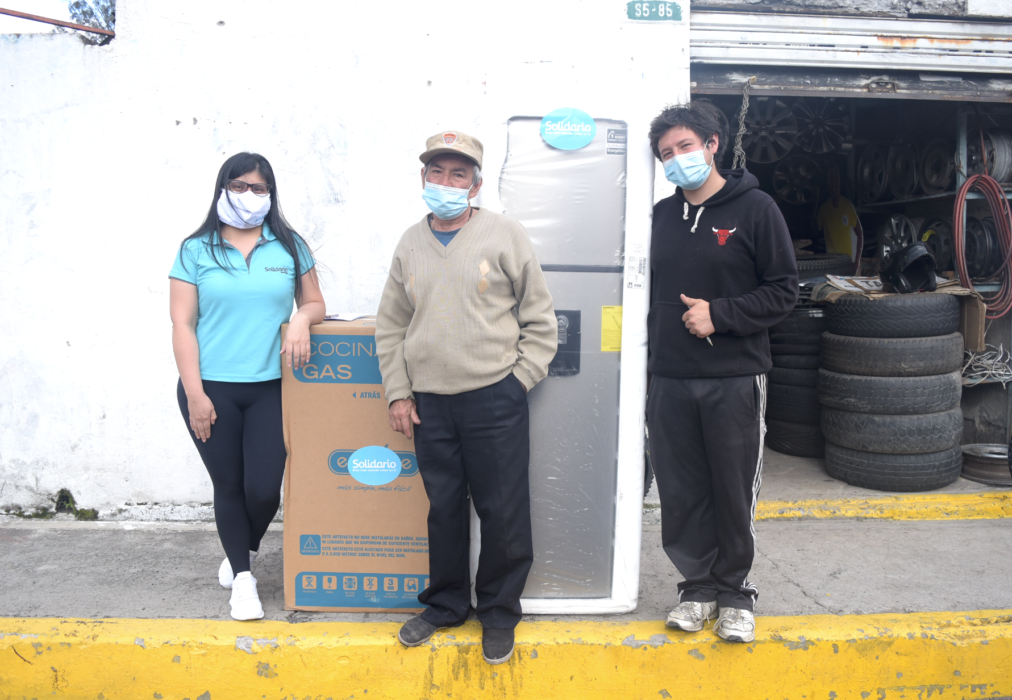
One of BlueOrchard’s long-time investees In Ecuador, Banco Solidario is a microfinance institution founded in 1995 when microfinance was new to Ecuador. Rather than opening Banco Solidario as a non-governmental organization, the founders wanted to demonstrate that microfinance could be profitable and have social impact without donations. As one of its earliest partners, BlueOrchard’s loans strengthened the bank’s financials and allowed Banco Solidario to focus on product development and distributions. Since 2006, Banco Solidario has perfected its “microfinance factory,” which streamlines the credit origination and approval processes into two separate teams, enabling the institution to serve Ecuadorian micro-entrepreneurs in a more efficient manner. The bank currently has 262,100 borrowers and 379,520 clients. Over the past 20 years, BlueOrchard’s support has contributed to Banco Solidario’s success in becoming a leading microfinance bank.
Impact Story
Raising cattle in Ulan Bator
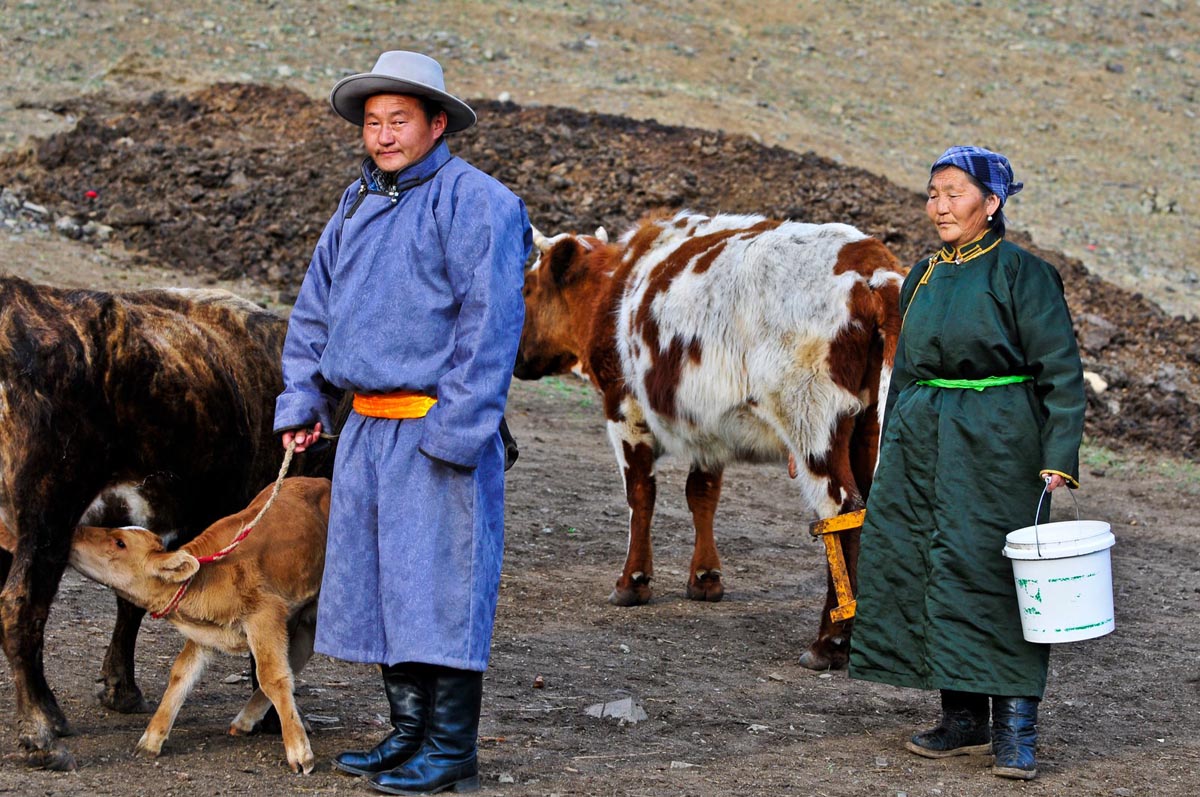
Dogsom is a widower of 42 years and he lives in the periphery of Ulan Bator with his mother Birvaa, who helps him in his work as a cattle raiser. He has three children who go to school in town. He previously worked as a veterinary for 18 years. Six years ago, he decided to raise cattle and started with six cows. In 2005, he took out his first loan of Mongolian Tugrik (MNT) 1,2 million (equivalent to USD 825) to buy more cattle. After he paid back his loan, he took out another one of MNT 2,7 million (about USD 1,856) to increase his herd further. Now, he owns 45 cows and he plans to further grow his breeding business by taking out another loan. The biggest part of his income comes from selling milk and cheese in the surroundings. He lives in an area of “datchas”, or holiday residences in the country side, where people retire during the summer season to get away from the heat and pollution of the city. He also delivers his dairy products to a holiday camp that was built in the proximity of his tent home.
Impact Story
The art of playing and constructing traditional drums
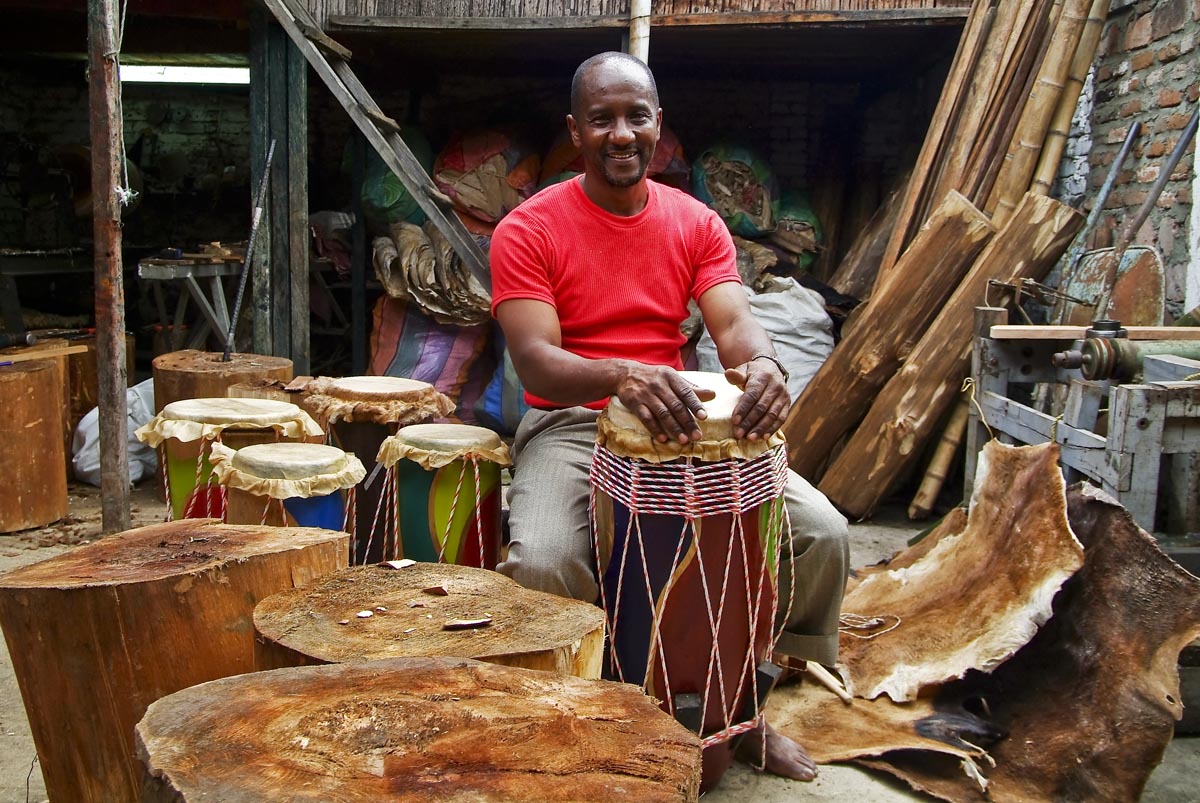
Katanga learned the art of playing and constructing traditional drums from his father. In his workshop, he builds drums, marimbas and other folklore instruments. His three children now help him in his work and his daughter Orica co-manages the Katanga foundation with him, which trains young musicians. To build his drums, he collects wood and cuts and molds it before covering it with skins. He also heads a musical group and promotes folkloric music. He received his first loan four years ago, worth approx. USD 1,700, which he has since repaid with interest. He presently holds a loan of the equivalent of USD 5,700. These credits allowed him to buy raw materials and utensils to build his instruments and to promote his enterprise.
“I’m delighted to promote the culture of my ancestors and to do so with the support of a grass roots financial institution. I would now like to show my work internationally,” says Katanga.
The information presented is provided by our portfolio partners for general informational purposes only. We have not independently verified for accuracy or completeness. The testimonials presented reflect the personal experiences and opinions of portfolio partners and their investees, and do not guarantee the same results for others.














